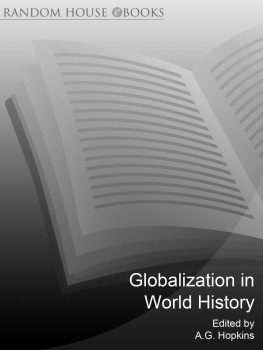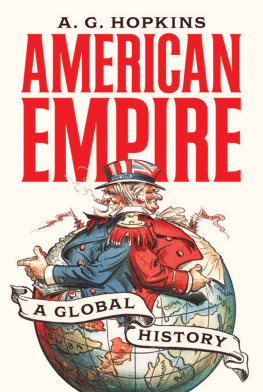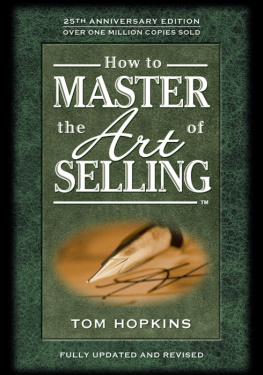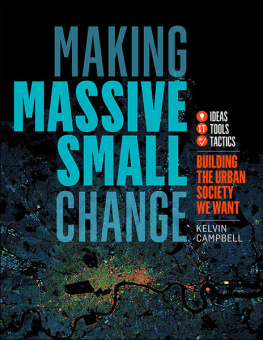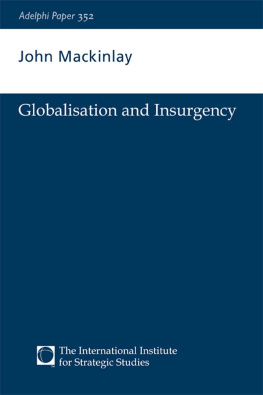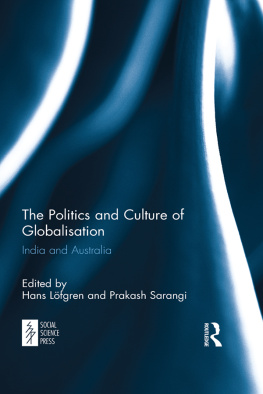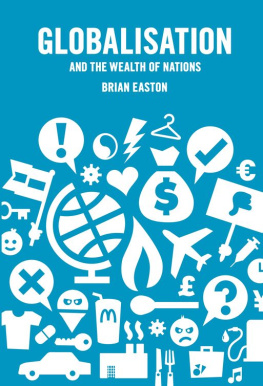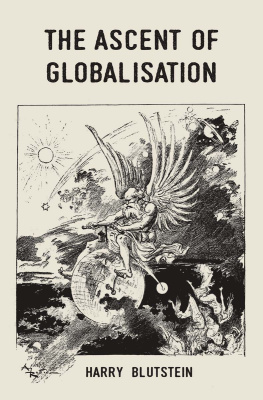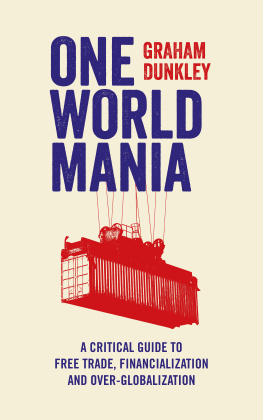About the Author
A.G. Hopkins, formerly the Smuts Professor of Commonwealth History at Cambridge University and now an Emeritus Fellow of Pembroke College, is currently the Walter Prescott Webb Professor of History at the University of Texas in Austin. He has published widely in the field of African and imperial history, beginning with a pioneering study, An Economic History of West Africa (1973), and continuing with two prize-winning volumes, written jointly with P.J. Cain, British Imperialism: Innovation and Expansion, 16881914 (1993) and British Imperialism, 19141990 (1993), which are now available in a second edition in one volume entitled British Imperialism, 16882000 (2001).
GLOBALIZATIONIN WORLD HISTORYEdited byA.G. Hopkins
This ebook is sold subject to the condition that it shall not, by way of trade or otherwise, be lent, resold, hired out or otherwise circulated without the publishers prior consent in any form (including any digital form) other than this in which it is published and without a similar condition including this condition being imposed on the subsequent purchaser.
Epub ISBN: 9781446426821
Version 1.0
www.randomhouse.co.uk
Published by Pimlico 2002
8 10 9 7
Selection copyright A.G. Hopkins 2002
Individual essays copyright each author 2002
The editor and the contributors have asserted their right under the Copyright, Designs and Patents Act 1988 to be identified as the editor and authors of this work
First published in Great Britain by
Pimlico 2002
Pimlico
Random House, 20 Vauxhall Bridge Road,
London SW1V 2SA
www.rbooks.co.uk
Addresses for companies within
The Random House Group Limited can be found at:
www.randomhouse.co.uk/offices.htm
The Random House Group Limited Reg. No. 954009
A CIP catalogue record for this book is available from the British Library
ISBN 9780712677400
Foreword
This path-breaking volume has its origins in the series of Millennium Lectures and one-day conferences organized by the Faculty of History at Cambridge University during the academic year 19992000. All were devoted to looking at major contemporary issues in long-term historical perspective. Such an approach is, of course, straightforward common sense. But this sort of common sense, as Mark Twain once remarked, is nowadays uncommon. Among the distinguishing (though not, of course, universal) vices of the late twentieth century were its short-termism and short attention span, as manifested, for example, in the increasing substitution of the sound-bite and the instant opinion for reasoned argument and considered judgement. No previous period in recorded history has been so persuaded of the irrelevance of the past experience of the human race. Because the strange new short-term world has no historical perspective, it has no sense of how bizarre it would have seemed to previous and will seem to future generations. In the long term its sheer absurdity will condemn it to oblivion. Sound-bite culture will go the way of Ninja Turtles, hoola hoops and other ephemeral nonsense. The dialectic of historical development will see to that. But, in the meantime, there is a price to pay for the Historical Attention Span Deficit Disorder (to use the correct medical term) which currently dominates the political, and even some of the intellectual, culture of our time.
Our understanding of globalization (a complex concept crudely reduced in sound-bite culture to the status of a slogan) has been distorted by lack of a rigorous historical perspective. There is nowadays a widespread illusion that globalization is simply a Western creation. That illusion will not survive a reading of this book. A further volume for publication in 2002, also based on the History Facultys Millennium Lectures and conferences, will seek to challenge other ahistorical misconceptions of contemporary issues.
The lack of long-term historical perspective distorts our view of the future as well as our understanding of the present. Most historians are too conscious of the failings of past prophets to wish themselves to prophesy. A merciful Providence allows us, even with the advantage of long-term historical perspective, to foresee the future only as Saint Paul glimpsed heaven through a glass, darkly. Were it otherwise, we might lack the courage to confront all the trials which await us. But though the past record of the human race, like our own personal experience, gives us no off-the-peg solutions, it provides insights which we ignore at our peril. Without these insights we have little prospect of distinguishing short-term deviations from long-term trends. We cannot hope either to understand the twentieth century or to glimpse what awaits us in the twenty-first unless we view both in long-term historical perspective. As Sir Winston Churchill put it, The further backwards you look, the further forward you can see.
Christopher Andrew
Professor of Modern and Contemporary History
Chair of the Faculty of History
University of Cambridge
Preface
The provenance of this volume is explained in the Foreword. It remains for me, as the editor, to express my appreciation of those who have helped to realize this particular product of Cambridge synergy. Colleagues in the Faculty of History, beginning with the Chair, Professor Christopher Andrew, have encouraged the venture from the outset and have helped in various ways to smooth the path to publication. We owe a considerable debt of gratitude to Emma Rothschild and the Centre for History and Economics at Kings College, which provided generous financial, institutional and secretarial support for a workshop in May 2000 that enabled the contributors to come together to discuss preliminary drafts of the chapters in this volume. Emma herself contributed valuably to the proceedings; Amy Price took on additional administrative responsibilities with cheerful efficiency. The Centres assistance also enabled us to invite four notable discussants, David Held, Charles Jones, Michael Kitson and David Washbrook, who gave willingly of their time and ideas. Additional hospitality was provided, most generously, by St Catharines College. The contributors themselves have responded to an above average degree of editorial pressure and persuasion with fortitude and tolerance; the editorial team at Pimlico Press has been unfailingly supportive.
A.G. Hopkins
July 2001
A.G. HOPKINS
Introduction: Globalization An Agenda for Historians
Globalization is the catch-word of the day. It emerged in the 1990s as the preferred term for encompassing the multiplicity of supra-national forces that have imprinted themselves on the contemporary world, and it seems likely to remain in use, and probably in over-use, in the foreseeable future. Examples of globalization from the mountainous waves generated by sudden financial flows to the less tumultuous but no less striking spread of a universal popular culture compete for attention and are reported in the media almost daily. The issues thrown up by these and associated developments have also begun to revive the ideological debate, which has been dormant for a decade, about the merits of capitalism. The advocates of globalization, who swept all before them after the fall of the Berlin Wall in 1989, have now to take note of an opposition that is beginning to stir. Free trade is challenged by fair trade. The defending champion has advantages of weight, height and reach, but at least there is now the making of a contest. The workers of the world, whether or not they are thought to be born free and everywhere in chains, are again beginning to attract attention.

